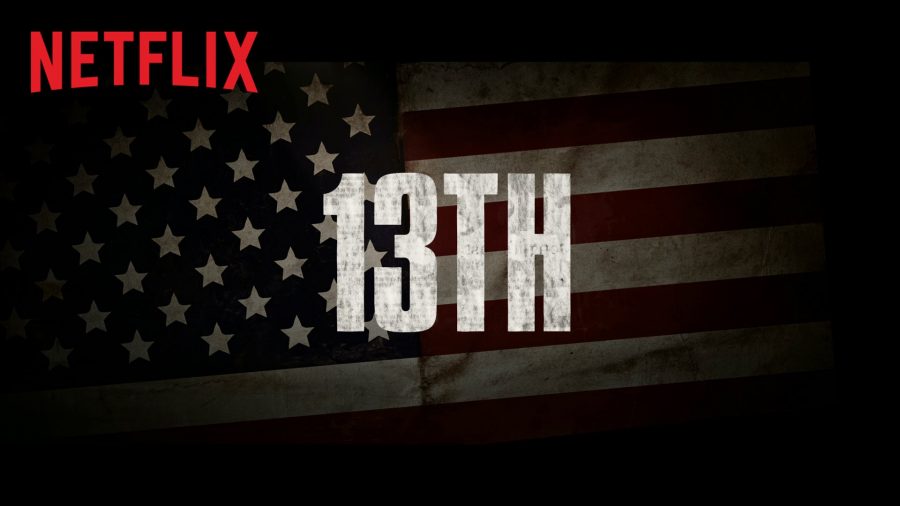On Oct. 7, Netflix released a compelling documentary entitled “13th,” which traces the political history of the incarceration and criminalization of African Americans since the 13th Amendment abolished slavery more than 150 years ago.
Directed by Ava Duverny, who also directed “Selma,” a 2014 Oscar winner, “13th” features commentary on the current state of American prisons by scholars, political leaders and activists including U.S. Sen. Cory Booker, Harvard history professor Henry Louis Gates Jr., and Black Panther activist Angela Davis. It also outlines the criminal justice initiatives enacted by various Presidents—such as former President Bill Clinton’s “Three strikes” policy—which contributed to the explosion of the U.S prison system and the disproportionate incarceration of African Americans.
Because of the massive economic stake the South had in slavery, Southerners created economic and political institutions that would continue the profitable system of free labor after the Civil War. The 13th Amendment, from which the documentary takes its title, freed slaves but made an exception for prisoners, thus creating the first American “prison boom.” African-Americans were arrested for minor offenses like loitering and used as free labor under “constitutional slavery.”
The United States has the highest incarceration rate in the world. The U.S. is home to five percent of the world’s population, but holds 25 percent of the world’s prisoners. While African Americans make up 14 percent of the U.S. population, they comprise more than 40 percent of the U.S. prison population. At least half of the African American prison population is imprisoned for non-violent drug offenses, which caused an explosion in the prison population and contributed to the current conditions of poverty, despair, and unemployment in so many of our nation’s cities
The film begins with the 1915 Civil War drama “The Birth of a Nation” and its stereotypical portrayal of black men as a danger to white women. Despite the historical fact that sexual assault by white men against black women happened far more frequently, this stereotype continued through the Reagan administration. “13th” ends with a series of videos showing the death of black men at the hands of police.
Criminal justice issues throughout history are woven together from the end of slavery to the present-day protests of the treatment of black men by police. This connection helps us understand what contributed to the rise of the present Black Lives Matter movement.
While former President Richard Nixon started the “War on Drugs,” Ronald Reagan continued it and the result was massive federal drug control agencies and mandatory minimums. Reagan’s disastrous mandatory minimums prohibited judges from considering any extenuating circumstances in sentencing non-violent drug offenders. Instead, each drug conviction has a specific mandatory minimum sentence.
As crack cocaine boomed in the ‘70s and ‘80s, it spread rapidly across the nation, but had the most devastating consequences in communities of color. Cocaine, which was more popular in white communities, was incorrectly perceived as a more sophisticated and affluent drug. The result was disproportionate mandatory minimums. It took 100 times more powdered cocaine to receive the same sentence as a crack cocaine conviction.
Clinton’s “Truth in Sentencing” law added to the discrimination in sentencing problem by prohibiting parole and imprisoning offenders indefinitely after their third arrest. Clinton has since acknowledged his mistake, but the damage has been done. And unsuccessful Democratic presidential candidate Hillary Clinton’s racially charged use of term “Super predators” to describe African American repeat offenders, was targeted in negative commercials during the campaign.
When we think about segregation and slavery today, we find it surreal: How could anyone have tolerated such horrendous institutions? But the truth is that we now have more blacks incarcerated than all African Americans who were slaves dating back to 1850.
The mass incarceration of African Americans and the inequities of the criminal justice system have taken an unimaginable toll on the African American community and the social fabric of families. The broken criminal justice system has contributed to unemployment, forced families apart and caused children to grow up without parents. There are millions of people behind bars who would have hope, jobs and economic stability if our criminal justice had not disproportionately imprisoned African Americans through 150 years of public policy.
Picture taken via Netflix












































































































